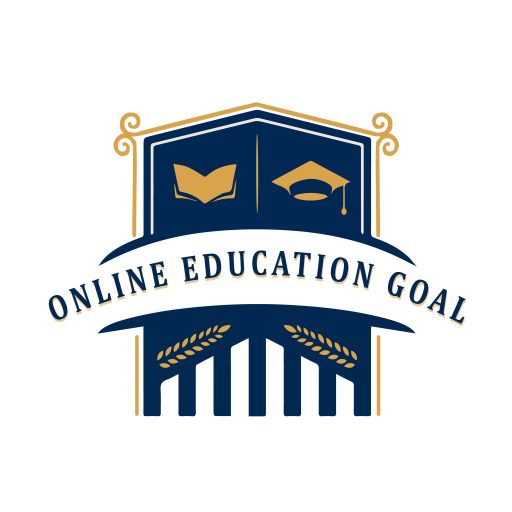Certificate in Higher Education to Unlock Career Success!
A Certificate in Higher Education (CertHE) is an academic qualification awarded after a year of full-time study. It’s equivalent to the first year of a bachelor’s degree at a university.
Embarking on a CertHE program offers individuals the opportunity to explore academic fields and gain valuable skills without committing to a full degree. Suitable for those looking to advance their career or pivot to a new field, this certificate provides a foundation in higher education that employers value.
It serves both as a standalone accomplishment and a stepping stone towards further studies, such as progressing to a diploma or full bachelor’s course. With diverse subject offerings, from the arts to the sciences, students can tailor their learning to match their interests and career goals. Pursuing a CertHE can be particularly beneficial for those returning to education or exploring a passion in depth.
The Essence Of Higher Education Certificates
Higher education certificates are essential tools in today’s academic and career landscapes. These credentials can fast-track career advancement and offer specialized knowledge that complements traditional degrees. Let’s delve into how they differ from degrees and why they are gaining popularity.
Differences Between Certificates And Degrees
Certificates and degrees serve different educational needs. Here’s a quick comparison:
| Certificate | Degree |
|---|---|
| Focus on specific skills or subjects | Broad academic knowledge |
| Short term programs | Long term commitment |
| Usually less expensive | Can be costly |
| May not require previous degree | Often need a high school diploma |
Certificates boost careers in a focused manner, while degrees provide a foundational education.
The Rise Of Certificate Programs In Higher Education
Many students and professionals are now choosing certificate programs. The reasons include:
- Time efficiency: Gain skills quicker.
- Focused learning: Concentrate on relevant subjects.
- Cost-effectiveness: Spend less than on degrees.
- Flexibility: Study while working.
Certificate programs provide a practical route to enhance expertise without the commitment of a full degree program.

Target Audience For Higher Education Certificates
Imagine a ladder. Each step takes you up in your career. Higher Education Certificates are these steps. They are short, full of knowledge, and show your skills. People who want more skills and new graduates often pick these certificates. They help you change jobs too. Let’s meet these learners.
Professionals Seeking Skill Enhancement
Busy lives need smart choices. Jobs change fast. Skills today may not help tomorrow. That’s why workers pick these courses. They learn new things while they work. This table shows why they study more:
| Reasons for Learning | Benefits |
|---|---|
| Grow in career | Stand out at work |
| Update know-how | Keep up with trends |
| Switch roles | Explore new fields |
- Managers hone leadership skills.
- IT pros learn cyber security.
- Teachers train in new education techniques.
Fresh Graduates And Career Shifters
Dream jobs can come true. New degree holders look to shine. A certificate can make them ready for work. People who want a new job path also join in. They find skills they love. Lists show why they choose these courses:
- Build a strong resume.
- Get ready for today’s jobs.
- Learn fast, join work soon.
Certificates cover many jobs:
- Design fans learn graphic software.
- Health buffs study nutrition.
- Writers perfect editing skills.
Variety Of Fields And Specializations
The journey through higher education includes a rich tapestry of subjects tailored to diverse interests and career goals. Within this academic landscape, certificates provide focused learning experiences. They offer deep dives into specific areas, ensuring students emerge with a robust set of skills and knowledge.
Popular Certificate Subjects
Certificates in higher education span a gamut of popular subjects. These programs cater to in-demand industry needs. They often serve as a gateway to exciting career paths. Listed below are some of the sought-after certificate subjects:
- Information Technology: Unlock technology’s power, focusing on cybersecurity, networking, or software development.
- Business and Management: Sharpen leadership and administrative skills, essential for the corporate world.
- Healthcare: Specialize in areas like medical coding, patient care, or health administration.
- Education: Enhance teaching expertise or delve into education technology.
- Creative Arts: Explore disciplines such as graphic design, writing, or music production.
Emerging Fields In Certificate Education
Educational landscapes continually evolve, with new certificate fields emerging to meet future challenges. Many institutions now offer programs designed to prepare students for the next big trends. Here are progressive areas worth considering:
| Field | Description |
|---|---|
| Data Science | Data interpretation and analysis are key skills in today’s decision-making processes. |
| Sustainable Energy | Focuses on renewable energy technology and sustainability practices. |
| Digital Marketing | Emphasizes online brand presence and marketing strategies in the digital space. |
| User Experience Design | Combines design and psychology to improve digital product interaction. |
| Robotics | Explores the design and application of robotic systems. |
The Impact On Career Advancement
A Certificate in Higher Education can significantly impact career advancement. It demonstrates commitment, specialized knowledge, and understanding in a specific field. These factors are crucial for professionals seeking to enhance their job prospects and climb the career ladder.
Case Studies: Success Stories
Real-world examples illustrate the transformative nature of a Certificate in Higher Education. Below are success stories that highlight this impact:
- Jane’s Promotion: Within months of earning her certificate, Jane achieved a promotion at her tech firm.
- Mohamed’s New Venture: Armed with new expertise, Mohamed launched a successful start-up.
- Emily’s Career Switch: Emily transitioned smoothly into healthcare management following her certificate completion.
Statistics: Employment Rates And Earning Potential
Empirical evidence supports the benefits of obtaining a Higher Education Certificate. Consider these compelling figures:
| Certificate Holders | Employment Rates | Earning Potential Increase |
|---|---|---|
| IT Certifications | 72% | 15% (vs peers without certification) |
| Business Certifications | 68% | 20% (vs peers without certification) |
| Health Services Certifications | 75% | 25% (vs peers without certification) |
These statistics reinforce the tangible advantages certificates offer, from more job opportunities to salary increases.
Balancing Work And Study
Embarking on a Certificate in Higher Education demands both dedication and flexibility. Many students face the challenge of juggling a job alongside their studies. This can seem tough, but with the right approach, balancing work and study becomes manageable. Let’s explore how to effectively navigate the path of education while maintaining a professional career.
Part-time Versus Full-time Enrollment
Choosing between part-time and full-time enrollment is crucial. Your decision impacts your daily routine and workload balance.
| Part-Time Enrollment | Full-Time Enrollment |
|---|---|
| Allows for flexibility in work hours | Requires intense study focus |
| May extend graduation timelines | Could expedite earning the certificate |
| Reduces stress by splitting priorities | Demands effective time management |
| Can offer evening or weekend classes | Typically follows a traditional daytime schedule |
Reflect on your personal and professional responsibilities. Then, decide if part-time or full-time enrollment best suits your lifestyle.
Time Management Tips For Professionals
Professionals must optimize their time to succeed in both arenas. Here are some actionable tips:
- Create a schedule that highlights your study sessions, work hours, and personal commitments.
- Use digital tools like calendars and reminder apps to stay on track.
- Set priorities for the week and adjust as necessary.
- Review your plan daily to accommodate any changes.
- Communicate with employers and instructors to align expectations.
- Stay disciplined by adhering to your study schedule.
Successful balancing requires commitment to your timetable and willingness to adjust when needed. Stick to these tips and watch your efficiency soar.

Assessing The Quality Of Certificate Programs
Assessing the Quality of Certificate Programs is crucial. Many students and professionals seek certifications to enhance their skills and employability. Yet not all certificate programs are created equal. How do we then measure their value? What makes a program both reputable and worthwhile? Let’s delve into key indicators of a high-quality certificate program.
Accreditation And Institution Reputation
Accreditation stands as a hallmark of excellence. Reputable programs will always have proper accreditation. This shows that an independent authority has reviewed the program. It ensures the education provided meets set standards. Below are clues to identify accredited certificate programs.
- Check for accreditation status on the institution’s website.
- Look for seals from recognized accrediting bodies.
- Contact the accrediting agency for confirmation.
Institution reputation also speaks volumes. Well-regarded schools maintain rigorous curricula. They are often the choice for high-caliber instruction. Here’s how to gauge a school’s reputation quick and easy.
- Read online reviews and testimonials.
- Examine rankings in education directories.
- Explore faculty credentials and achievements.
Alumni Network And Employer Recognition
The strength of an alumni network can signal program quality. A robust network means active engagement. It reflects satisfaction and success post-certification. Networking opportunities further enrich career prospects. Here are benefits of a strong alumni network.
- Mentorship from seasoned professionals.
- Job referrals within the community.
- Continuous learning and growth opportunities.
Employer recognition influences a certificate’s value. Employers who value the program may prefer hiring from its graduates. They might even sponsor their employees’ enrollment. Recognized programs can leapfrog your career to new heights. Below are ways to check employer recognition.
- Survey the program’s corporate partners.
- Analyze job postings for preferred certifications.
- Connect with HR professionals for their insights.
Financial Investment And Returns
Understanding the financial aspects of a Certificate in Higher Education is crucial. It’s a significant step that involves both investment and potential returns. Gauging the value compared to traditional degrees is essential. We’ll explore how these programs can offer beneficial returns on investment (ROI).
Cost Comparison With Traditional Degrees
Investing in your education has long-lasting impacts on your career and earnings. Let’s compare the costs of a Certificate in Higher Education to a traditional degree.
| Certificate Program | Traditional Degree |
|---|---|
| Shorter duration | Typically 4 years |
| Lower tuition fees | Often higher tuition |
| Less time off work | More career downtime |
Direct costs such as tuition are typically lower for certificates. Indirect costs like time off work also tend to be less significant. This often makes certificate programs a more accessible choice financially.
Understanding The Roi Of Certificate Programs
The ROI of certificate programs can be substantial. Here’s why they might be a smart investment.
- Focus on skills – Programs hone in on industry-specific capabilities.
- Quicker entry – Gain access to the job market faster, start earning sooner.
- Job advancement – Certificates can lead to promotion opportunities.
Let’s consider long-term gains. Certificate holders may see a salary increase due to these new skills. Over time, this compounds and helps in recouping the initial expenses.
- Analyse average salary raises in your field post-certification.
- Factor in the cost of the program and additional expenses.
- Estimate how quickly you can recover these costs.
Personal career goals play a large role. Each individual must assess how a certificate aligns with their chosen career path.
The Future Of Professional Education
The landscape of professional education is undergoing a monumental shift. Certificates in Higher Education are becoming vital tools. They bridge the gap between traditional degrees and the evolving skill requirements of the modern workforce. As industries evolve at a breakneck pace, continuous learning emerges as a cornerstone for career growth.
Trends In Lifelong Learning
Lifelong learning is no longer a luxury; it’s a necessity. The rise of digital technologies has changed how we learn. Here are the latest trends:
- Microlearning: Bite-sized lessons for skill acquisition.
- Online courses: Learn from anywhere, at any time.
- Corporate training: Employers invest in employee development.
- Learning communities: Peer-to-peer knowledge sharing is on the rise.
These trends demonstrate a shift towards more flexible and accessible learning options.
Integrating Certificates Into Career Development Plans
Career planning is incomplete without considering education. Certificates play a key role:
| Stage | Action | Impact |
|---|---|---|
| Entry-level | Acquire fundamental skills | Opens doors to new opportunities |
| Mid-career | Specialize or pivot | Enhances job security and growth potential |
| Senior-level | Leadership and management training | Prepares for higher responsibility roles |
A certificate can significantly boost career trajectories at any stage. Crafting a development plan with certifications in mind is essential for modern professionals.
Application Process And Requirements
Ready to take your education to the next level with a Certificate in Higher Education? Here’s what you need to know about the application process and the requirements. A straightforward approach will get you started on the path to further academic achievement. Let’s break it down, step by step.
How To Apply
Applying for a Certificate in Higher Education is an exciting step forward.
- Start by visiting the college or university website.
- Look for the CertHE or Certificate in Higher Education section.
- Fill in the online application form with accuracy and care.
- Upload required documents, such as transcripts and identification.
- Submit the application before the deadline.
Make sure to review each section of the application thoroughly before submission.
Prerequisites And Eligibility Criteria
Before applying, you must meet set prerequisites to qualify. These include:
| Educational Background | Specific Qualifications |
|---|---|
| Secondary Education | A-Level, High School Diploma, or equivalent |
| Language Proficiency | IELTS, TOEFL, or equivalent for non-native speakers |
Each institution may have additional unique criteria. Confirm details directly with them.
- Age requirements, often 18 years or older.
- Relevant experience or prior learning in the chosen field.
- Personal statement reflecting your motivation and goals.
Take the time to gather and prepare all necessary documents. Early preparation helps secure your slot.
Support Systems And Resources
Support Systems and Resources play a vital role in a student’s education journey. They provide necessary tools for success. Whether it’s career advice, job placements, or ongoing support, they are crucial. Let’s dive into the resources that a Certificate in Higher Education offers to help students thrive.
Career Services And Job Placement
Embarking on a career path after completing your studies can be daunting. The Certificate in Higher Education eases this transition. It provides robust career services. These include:
- Resume Building: Workshops that teach you to craft compelling resumes.
- Mock Interviews: Sessions that prepare you for real job interviews.
- Job Fairs: Opportunities to meet potential employers and network professionally.
- Placement Services: Direct connections with companies looking to hire graduates.
Career counselors are also available. They guide you towards career pathways suited to your skills.
Continuing Support After Program Completion
Graduation isn’t the end of support for students. The Certificate in Higher Education ensures help continues. Post-graduation resources include:
- Alumni Networks: Join a community of peers to share opportunities.
- Mentorship Programs: Gain insights from experienced professionals.
- Workshops and Webinars: Keep learning with ongoing education opportunities.
- Job Alerts: Regular updates on job openings in your field.
This continuous support confirms that students are never alone in their career journey.

Frequently Asked Questions On Certificate In Higher Education
What Is A Certificate In Higher Education?
A Certificate in Higher Education (CertHE) is a UK qualification equal to the first year of a bachelor’s degree. It offers foundational knowledge in a subject area and can lead to further study or improve job prospects.
How Long Does A Certhe Take To Complete?
Typically, a Certificate in Higher Education takes one year of full-time study to complete. For part-time students, it may take up to two years, depending on their pace and course requirements.
What Are The Entry Requirements For A Certhe?
Entry requirements for a CertHE vary by institution but generally include A-levels, BTECs, or equivalent qualifications. Relevant work experience may also be considered by some universities.
Can Certhe Credits Transfer To A Degree?
Yes, credits from a CertHE can usually be transferred to a related bachelor’s degree. This can shorten the degree’s completion time as the CertHE covers the initial study year.
Conclusion
Navigating the landscape of higher education can be a complex journey. A Certificate in Higher Education offers a vital stepping stone. It caters to diverse learning needs and career aspirations. Embrace this opportunity to expand knowledge and skills. Your future self will thank you for this educational investment.







